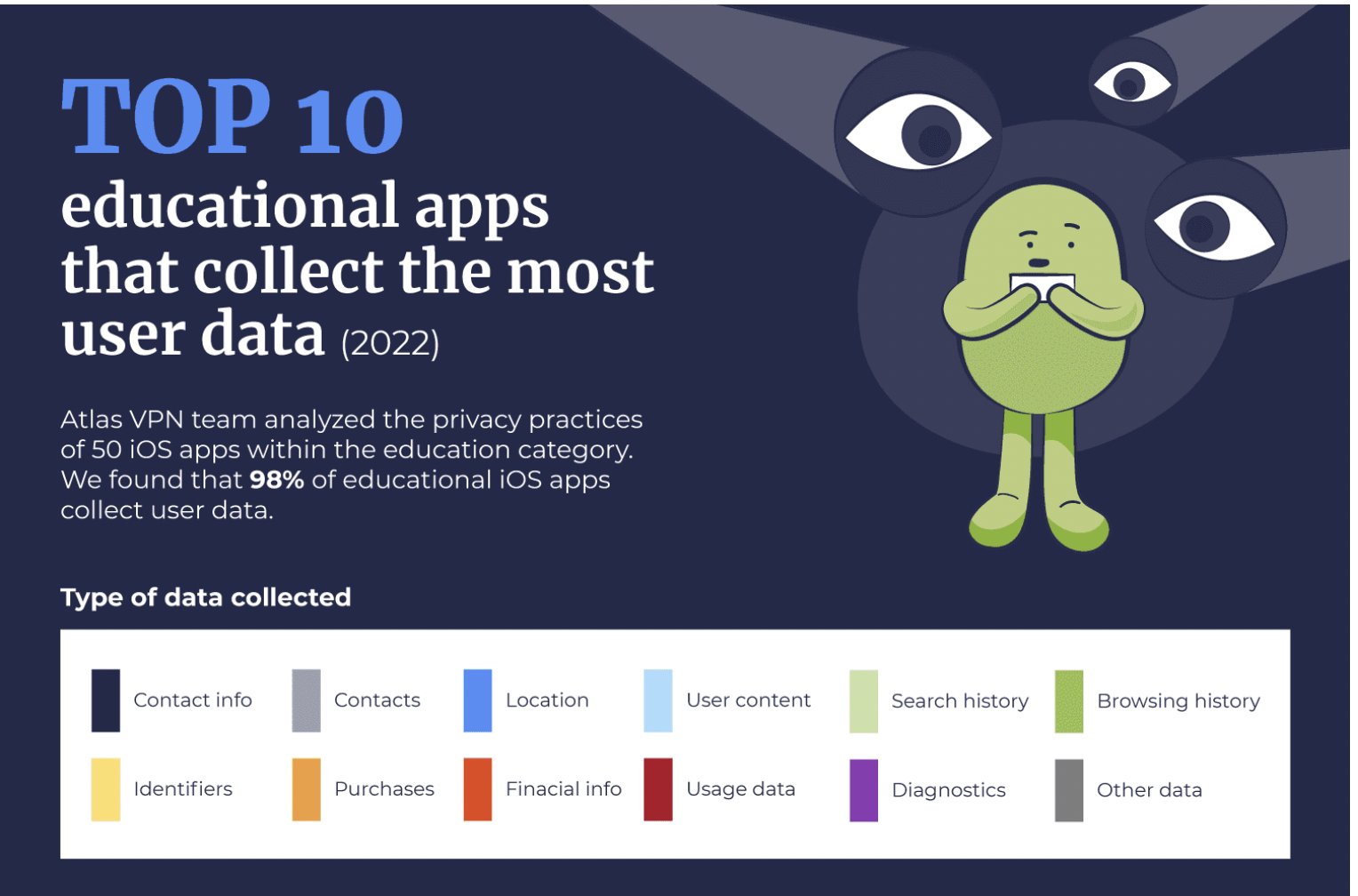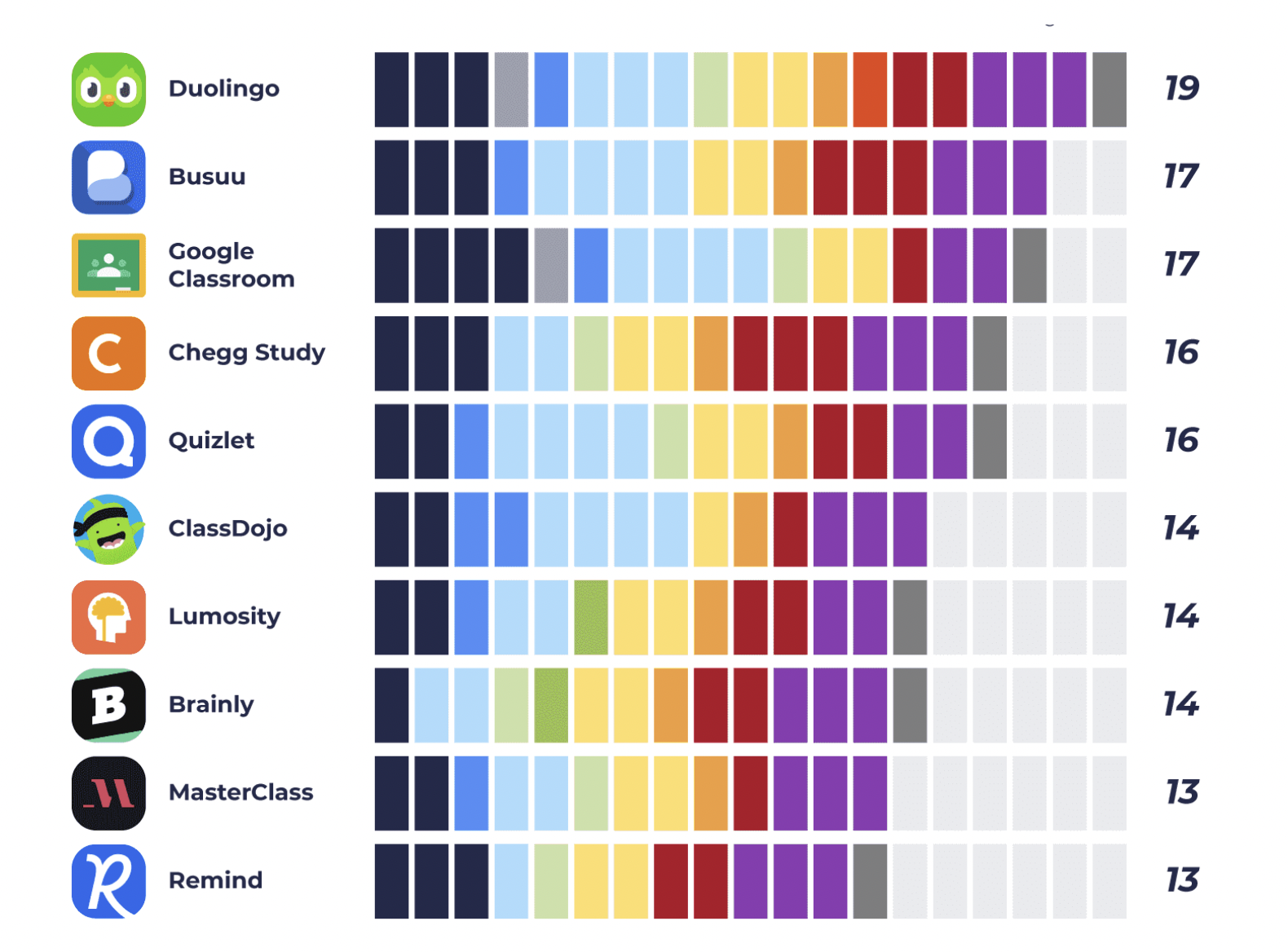Top 10 educational iOS apps that collect the most personal data (Toni)

Educational apps are popular year-round, but they come in especially handy with the start of the school season. However, while they might benefit your or your kids’ learning, they can harm your privacy. To help mobile users understand what information such apps collect, the Atlas VPN team decided to investigate the privacy of 50 popular educational apps for iOS.
The Atlas VPN team found that 98% of iOS apps within the education category collect user data. On average, one educational application for iOS harvests data across more than 8 data segments, such as name, email, phone number, location, payment information, and search history, to name a few.
A segment is a data point such as name, phone number, and precise location that are grouped in broader data types such as contact information, financial information, and location. In total, Apple’s App Store distinguishes 14 data types and 32 segments.
Duolingo, the leading language learning app, came out on top as the most data-hungry, collecting user information across 19 segments. Yet another language learning app Busuu and the learning platform Google Classroom are also not far behind with 17 data segments.
The third spot on the list is occupied by gamified online learning tool Chegg Study and flashcard solution Quizlet. These apps gather information from 16 data segments.
What data are apps collecting?
When it comes to the types of data that apps collect, there is a lot of variation. However, some types are more common than others.
Identifiers, such as user ID and device ID, are the most frequently collected data type at 88%, followed by contact information, such as name, email, phone number, or physical address, at 84%.
Out of the studied apps, 74% also gather usage data, such as product interactions, 64% of apps collect user content, such as audio data, photos, or videos, meanwhile 52% garner diagnostic information.
Additionally, 42% of apps harvest purchase data, such as payment history, 28% do so with location data, including coarse and precise location, and 22% of apps with search history.
The picture is clear: most apps collect data in one way or another. While not all of them do so for nefarious purposes, such as sharing it with third parties and data brokers, knowing what kind of data apps gather can help you decide whether you want to continue using those apps or change to more privacy-conscious alternatives.

February 20, 2025
North Lamar HOSA Encourages Colon Cancer Awareness in a Unique Way
February 17, 2025



